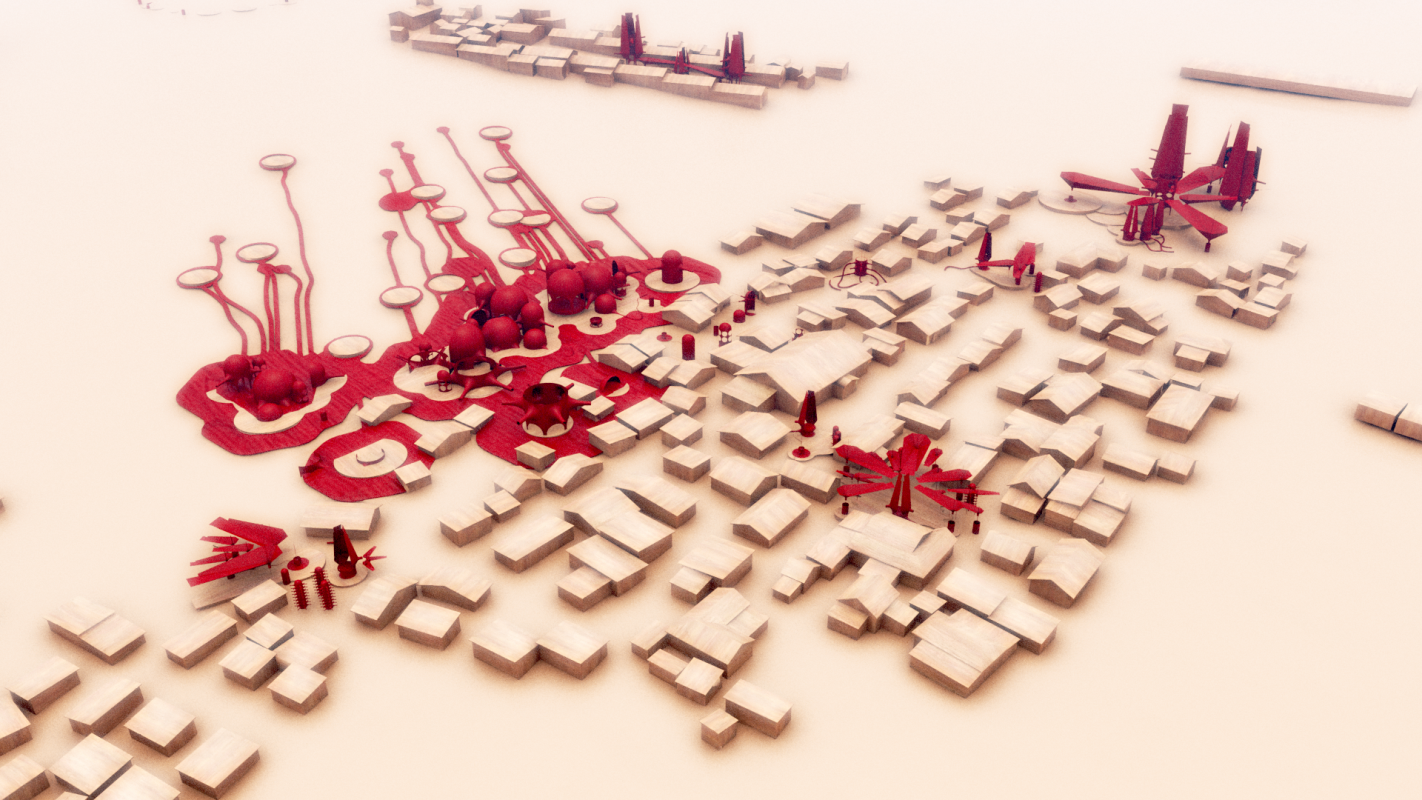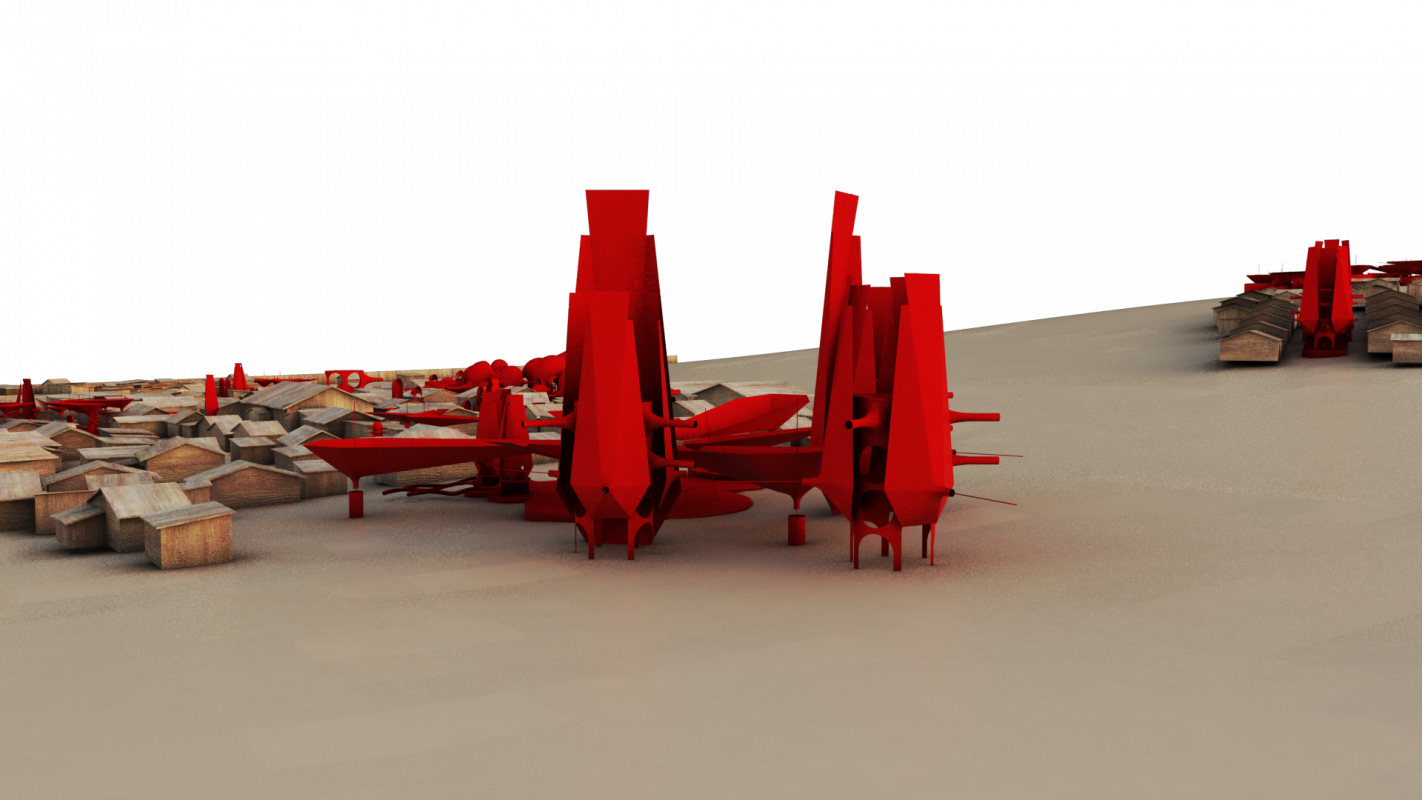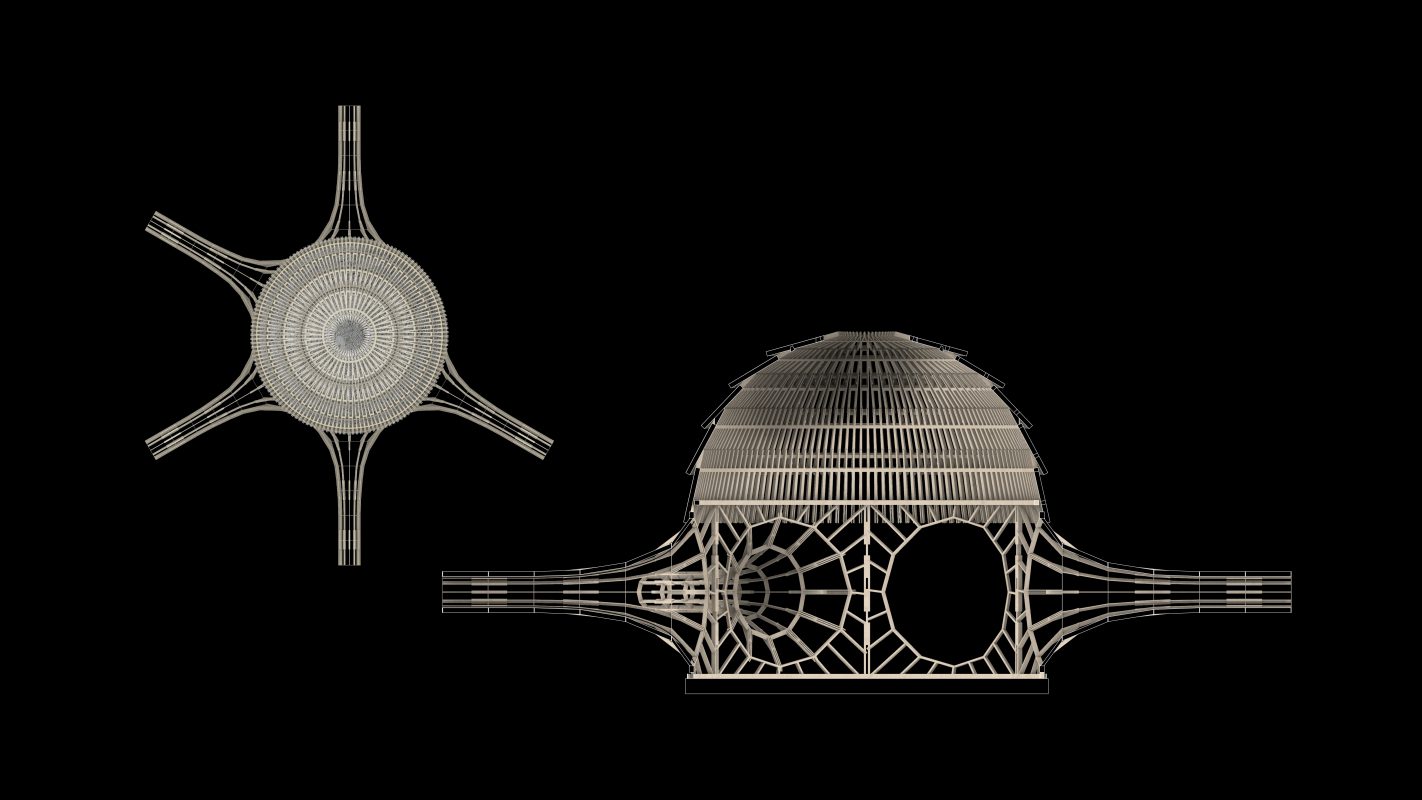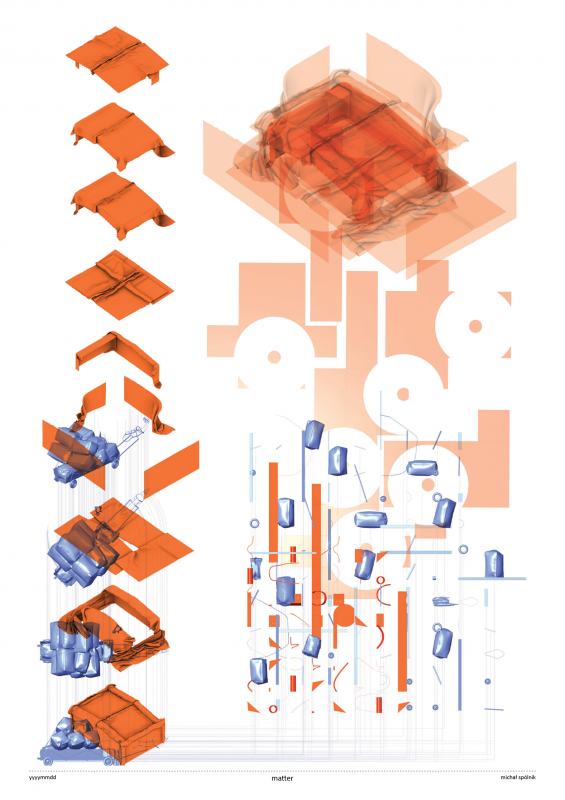This thesis investigates, how spatial and sonic qualities of architecture can be used to produce festive interactive instruments of daily communal coping for a marginalized Roma community. Forced to live on a garbage dump in Cluj-Napoca, Romania, and facing conditions of environmental racism and institutional neglect, “inhabitable music instrument” produces a system of mechanisms and everyday strategies for a radical, loud communal festivities.
(c) Michał Spólnik
(c) Michał Spólnik
(c) Michał Spólnik



